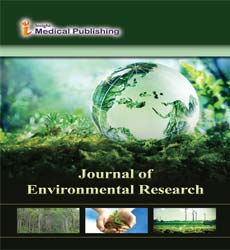The Chronic Influence of Carbon Monoxide Intoxication on Lipid Peroxidation
Abstract
Carbon monoxide is a known notorious gas with a high preponderance of causing either morbidity or mortality depending on the concentration inhaled or administered. The study was aimed to determine whether chronic CO intoxication could stimulate lipid peroxidation. A total of twenty albino rabbits of same sex, age and weight constituted the sample size as validated by the Mead’s formula. The study was divided into four groups of five rabbits each; the control, 10 days, 20 days and 30 days respectively. Except the control group, others were exposed daily to thirty minutes of 200 ppm CO intoxication. The statistical analysis was done with the aid of SPPS 20 version, using One-way Anova (Post Hoc-LSD). Biochemical parameters indicative of lipid peroxidation were analysed using blood and vitreous humor samples. The serum and vitreous chemistry revealed a significant decreased (p<0.05) in the concentrations of total cholesterol, high density lipoprotein, low density lipoprotein, very low density lipoprotein, uric acid, Glutathione Reductase and Superoxide Dismutase. On the contrary, the concentration of serum and vitreous MDA increased significantly (p<0.05). The findings revealed that chronic CO intoxication could provoke lipid peroxidation.
Open Access Journals
- Aquaculture & Veterinary Science
- Chemistry & Chemical Sciences
- Clinical Sciences
- Engineering
- General Science
- Genetics & Molecular Biology
- Health Care & Nursing
- Immunology & Microbiology
- Materials Science
- Mathematics & Physics
- Medical Sciences
- Neurology & Psychiatry
- Oncology & Cancer Science
- Pharmaceutical Sciences
